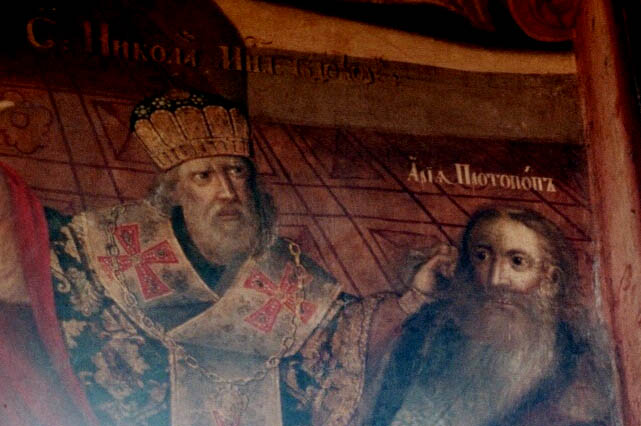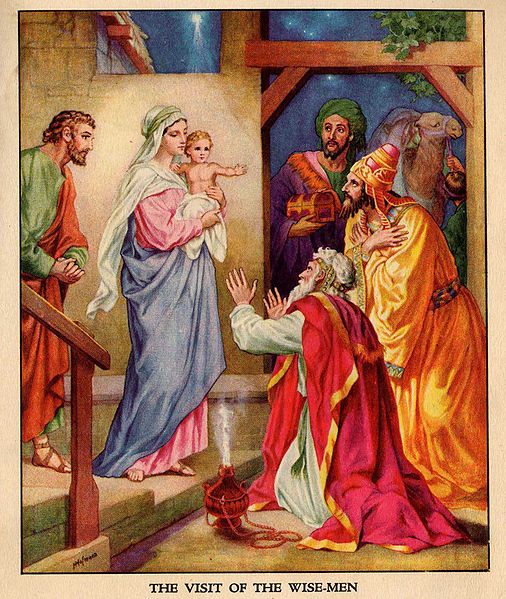We Forgive You, Saint Nick

Nicholas of Myra punching Bishop Arius at the Council of Nicaea
The birth of Jesus Christ may be the “reason for the season,” but for millions of children the man of the moment is Santa Claus.
While it is widely known that the Santa Claus of Christmas is derived from St. Nicholas, few know much about the original Saint Nick beyond the fact that he did not live at the North Pole, own flying reindeer, or employ a workshop full of elves.
Nicholas was a political ally of Athanasius of Alexandria during the Church intrigues of the 4th Century that led to Trinitarianism. And, like Athanasius, he is rumored to have come into power at an absurdly young age through dubious means.

 In the ancient church, the 6th of January was observed in celebration of not only the birth of Jesus and the adoration of the Magi and shepherds, but also other events such as his baptism by John and the wedding at Cana.
In the ancient church, the 6th of January was observed in celebration of not only the birth of Jesus and the adoration of the Magi and shepherds, but also other events such as his baptism by John and the wedding at Cana. Today is St. Lucia’s Day, the first of the 12 Days of Light honoring the Star of Bethlehem. Time to put up the lit decorations! But, also a good time to reflect on the importance of Christmas.
Today is St. Lucia’s Day, the first of the 12 Days of Light honoring the Star of Bethlehem. Time to put up the lit decorations! But, also a good time to reflect on the importance of Christmas.